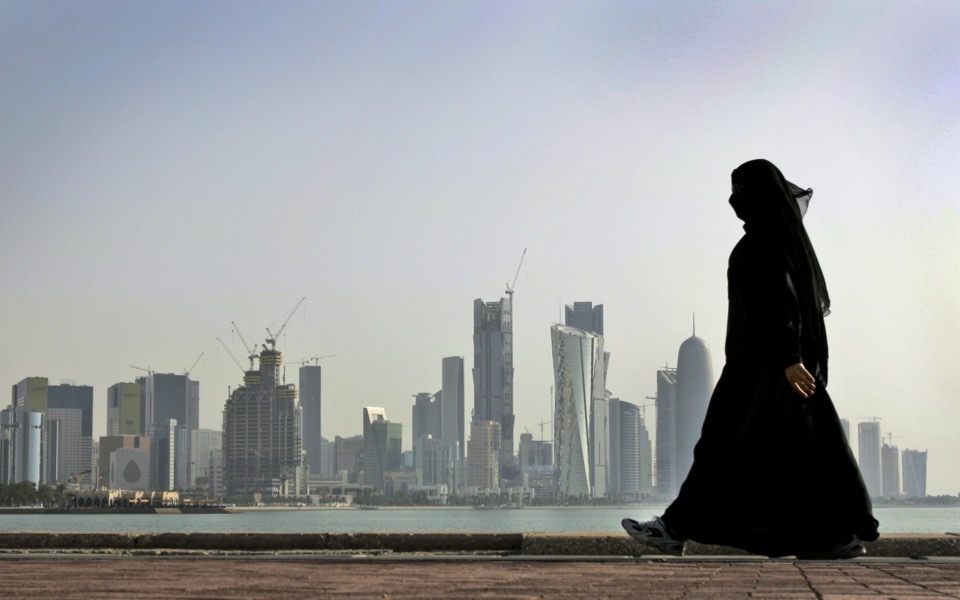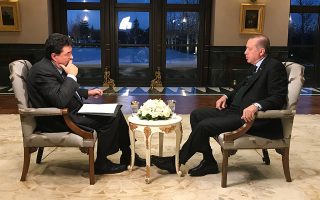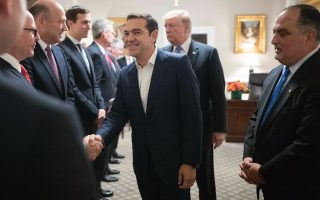Greece can help against embargo, says Qatari human rights chief

The president of Qatar’s National Human Rights Committee hopes that, as a key member of the European Union and the European Parliament, Greece can play an important role in alerting the international community to the need to end the diplomatic crisis between his country and Saudi Arabia, the United Arab Emirates, Bahrain and Egypt.
Speaking to Kathimerini while on a recent visit to Athens, Ali bin Samikh Al-MarrI spoke of the impact of the blockade on his country and called for the support of the entire international community in condemning the violations being committed by those countries.
What is the purpose of your visit to Greece?
Since the blockade imposed on Qatar by Saudi Arabia, the United Arab Emirates, Bahrain and Egypt, the National Human Rights Committee (NHRC) has prepared regular reports on human rights violations caused by the blockade, in the fields of health, education, family reunification, private property, movement and other rights enshrined in the core international human rights treaties. In this context, the NHRC submitted the aforementioned humanitarian violations to international organizations, in particular the United Nations and their humanitarian agencies. It has also presented these violations in detail to all the parliaments of the world. Today’s visit to Greece is considered the starting point for a fourth round of European visits, where we aim to meet rapporteurs and officials for human rights matters in order to analyze these violations and their impact on the people of the Gulf region.
What is your assessment of the recent Gulf crisis?
The NHRC believes that this crisis directly targets the life of the citizens in this region. This crisis has led to the separation of husbands and wives, family separations, and attempts to sever the ties of families living in the Gulf region. There are citizens who have been threatened with losing their nationality if they stayed in Qatar, there are Qataris who were expelled from their rooms in hospitals and from the educational ranks, just because they are Qataris. Many citizens also lost their investments and properties and suffered great losses.
Have there been human rights violations resulting from the crisis?
The number of violations until December 5, according to our latest statistics, amounted to 3,970. These were in the fields of health, education, movement, residence, hate speech and incitement of violence. Freedom of opinion and expression have been violated. Mixed families are the ones most affected by exclusion. The free world cannot accept these violations because they are substantiated by evidence from one of the most transparent, independent and impartial organizations in the world. All these organizations have agreed that this crisis has caused serious violations of human rights. There is no doubt that these international reports have been drawn up following on-the-spot visits to Doha, preventing people from following a neutral stance.
What is your assessment of the international reaction and the effect of the international community’s response to the crisis?
During all the visits made by the NHRC to European capitals and the United States, and during the meetings held in the parliaments of the world, there was a positive response that condemned and criticized these violations and called for an immediate end to the blockade. Perhaps one of the strongest recent reactions is the report issued by the United Nations, in which it has confirmed beyond any doubt that this unfair embargo imposed on Qatar is an economic war during which blatant human rights violations have occurred.
Is there a role for Greece in dealing with the crisis?
Greece as a key component of the European Union and a member of the European Parliament will surely play an important role in bringing international pressure to abolish the blockade imposed on Qatar. In Athens, we met a number of human rights officials, from whom we received a great deal of response. These meetings resulted in an international consensus condemning the embargo and calling for an end to the injustice suffered by the citizens of the Gulf region.





